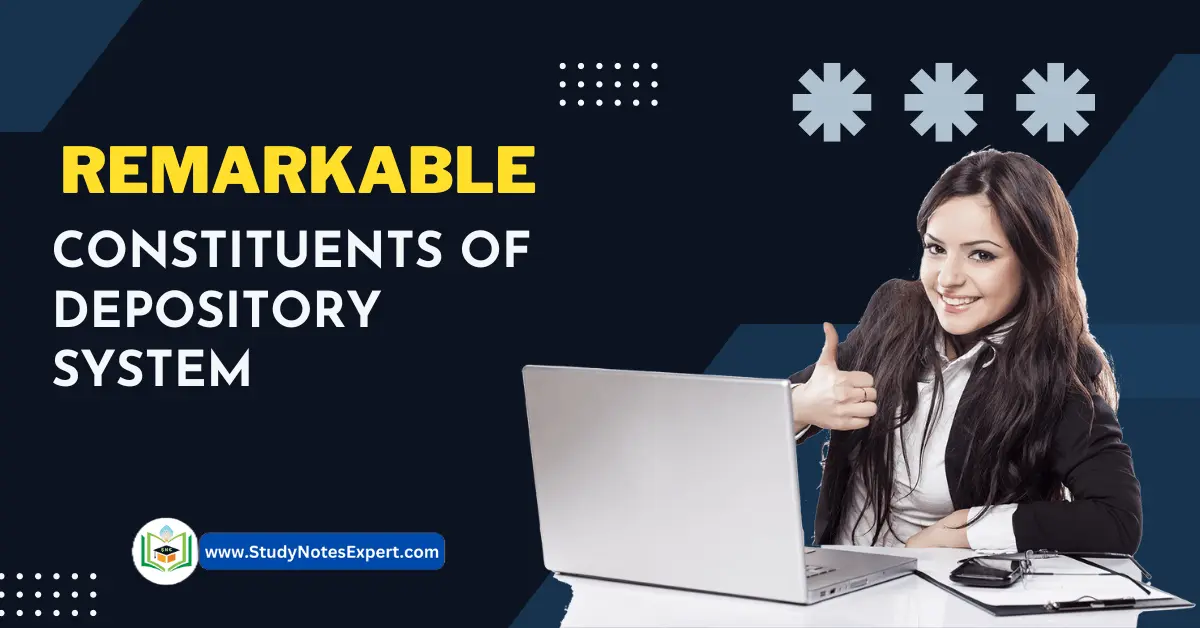The depository system in India was introduced through the Depositories Ordinance of 1996. A Depository is a party or institution receiving a deposit. One with whom anything is logged in trust. In this article, we will discuss the constituents of depository system. The Depository Act of 1996 defines a depository as a company funned and registered under the Companies Act, 1956 and which is granted a certificate of registration under the Securities and exchange board of India (SEBI) Act, 1992; thus, a depository is a person or a company to whom securities are entrusted for safe keeping and handing dealing in them on behalf of the own of the securities.
Top 4 Constituents of Depository System
There are the main 4 constituents of depository system that we have mentioned in below segmentations:
- Depository
- Depository Participant (DP)
- Issuer
- Beneficial Owner
1. Depository
A Depository is the chief player in the system and is organized as a company. The depository may not engage in the process unless registered with SEBI under the SEBI (Depositories and Participants Regulation) 1996. It is an organization where the securities of an investor are held electronically through the medium of the participant. It enables the surrender and withdrawal of securities to and from the depository through the pokes of decartelization and rematerialization. In India, two depositories have come up:-
- National Security Depository Ltd.
- Central Depository Service Ltd.
2. Depository Participants (DP)
A participant is assigned to act as the depository agent and may not act unless registered with the SEBI. The Depository Act of 1966 defines a participant as a person registered as such under SEBI Act 1992. It can be IDBI, ICICI, IFCI. A participant may belong to one of the following categories:-
- Public financial institutions as defined in the Companies Act 1956.
- Bank as per the RBI Act, 1934 schedule II.
- Foreign bank operating in India.
- State financial corporation,
- Custodian of securities recognized by SEBI
- Cleaning corporation or clearinghouse of a block exchange.
- Non-banking finance company as specified.
3. Issuer
DIP guidelines, 2000 provide that if a company makes an eight issue of a value exceeding Rs 50 Lakes or public issues, it will agree with a depository for dematerializing its shares or other securities. The issuer is the company that issues the security. In the case of the listed companies with shares already in the physical form, SEBI is making them enter into a dematevatsead form.
4. Beneficial Owner (Investor)
The beneficial owner is the person who is known as a member of a company holding shares and share certificates in the physical mode. The situation is a bit different in the case of a demat account. By legal fiction, the depository to whom the share is allotted is the beneficial owner.
The Depository Act 1996 defines a beneficial owner as a person whose name is recorded as such with a depository. For the definition of transfer and avoidance of script, the depository can affect transfer without refreshing the matter to the issue. Other than this, the beneficial owner is entitled to the same rights and obligations due to a company member under the Companies Act 1956.

